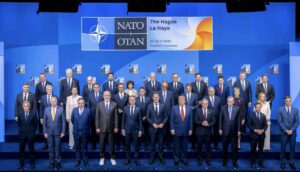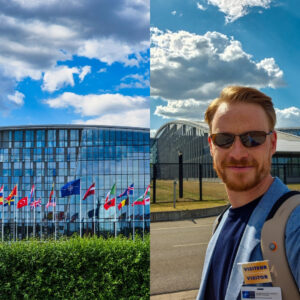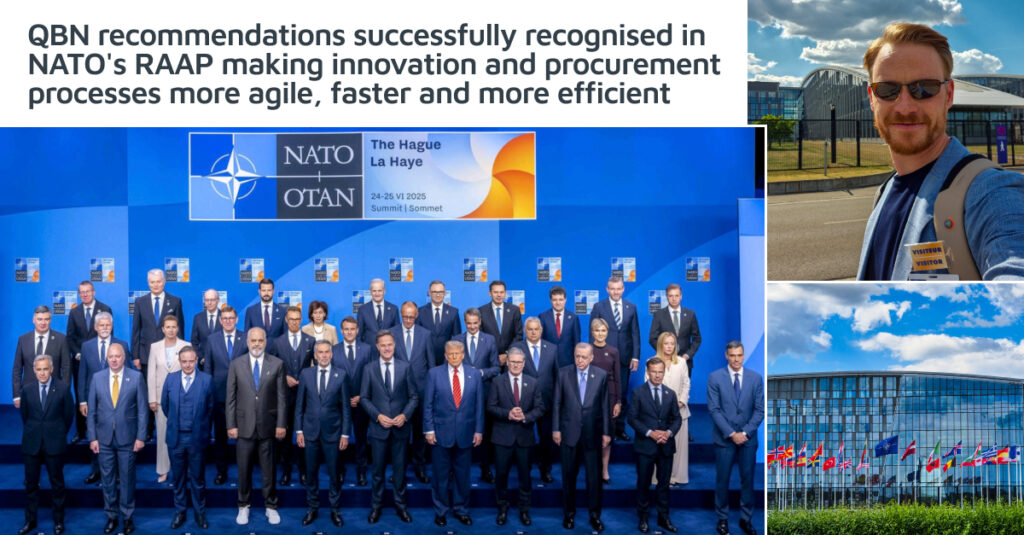The NATO Allied Heads of State and Government endorsed the Rapid Action Adoption Plan (RAAP) on 25 June 2025 at the NATO Summit in The Hague – following almost all of QBN’s recommendations to maintain its strategic edge, NATO will adopt its innovation and procurement cycles and make them more agile, faster and more efficient.


As the European quantum ecosystem stands ready to make a difference on civil and defence applications of quantum, QBN took up the lead in contributing to the ongoing efforts within NATO to formulate a RAAP. The Quantum Business Network (QBN), the global industry network for quantum technologies, therefore has – in consultation with its members – compiled some of the most pressing challenges and identified recommendations on how to speed up NATO’s innovation cycle, specifically for the functional deployment of key technologies such as quantum.
Quantum is key to a secure and sovereign Europe
As key enabling technology, quantum technologies are crucial for modern defence, enabling secure communications, advanced sensing, and unmatched computing and situational awareness capabilities. NATO’s Quantum Strategy reflects this notion prioritising quantum technologies due to their implications for defence and security, providing capabilities that are unparalleled to technology that is currently available to the alliance and that could constitute a significant strategic and operational advantage. As a member of NATO’s Transatlantic Quantum Community, QBN represents and orchestrates Europe’s efforts making the defence sector quantum ready while accelerating technological advancements, and the development and adoption of civil applications.
NATO’s 5% Defence Spending – Europe and the Quantum Industry is ready
The EU and Europe’s NATO members are moving fast to gear up its defence spending with € 800 bn extra investment in defence and military capabilities from the EU, Germany’s special funds of €500 bn for defence and the NATO’s agreement on increased defence spending of 5% of GDP (3,5% for defence, 1.5% for infrastructure).
Now is up to us to position the EU as key driver strengthening NATO’s innovation roadmap. Current bottlenecks throughout the innovation & procurement systems are well-documented, including fragmented innovation ecosystems, a lack of field tests, complex procurement, and funding challenges – all of which risk slowing progress. The NATO RAAP will address these now.
NATO Rapid Action Adoption Plan – key facts
The RAAP aims to accelerate the alliance’s adoption of new technological products to a maximum of 24 months. The alliance’s vision is to win the technology adoption race by embracing a new mindset and a better approach to defence innovation, and taking decisive steps to find and foster the best technologies in the Alliance, test, and be able to adopt them at the speed of relevance. NATO will support Allies to:
- Accelerate procurement and integration
- De-risk new technological products
-

Ensure that new technological products are better tailored to Allied military needs
The implementation of the RAAP will align the alliance’s innovation agenda with the NDPP capability targets. It is driven by allies and considers the risks inherent in innovation and rapid adoption processes to iterate, fail fast, and reward agility and flexibility.
QBN very much welcomes the RAAP leveraging the EU’s Defence and Quantum Ecosystem
We consider the NATO’s RAAP as a great success of QBN’s efforts to identify and implement the biggest leverages to accelerate quantum innovation along the entire value chain, from the lab to world-class products to real-world industry applications and their successful market adoption.
However, while the RAAP tackles many general deeptech challenges significantly improving the ability for quantum start-ups and other deeptech innovation drivers to participate in the procurement and adoption process and thus, include dual-use applications in their business strategy, it does not seize the full potential of the European Quantum Ecosystem. It is once again up to the EU, its Quantum Industry and QBN and its members to unleash the full potential of quantum technologies.
QBN will keep its members updated on new developments and opportunities, and together with our members we will continue our efforts collaborating with NATO, the European Commission and other key stakeholders. We systematically identify barriers, gaps and opportunities, advise decision makers from governments and end-user enterprises on quantum strategies and their implementation and holistically support our members to build a thriving quantum economy for a sovereign, secure and competitive future.
QBN is proud to contribute to NATOs efforts since almost 4 years now from its Quantum Strategy to the Transatlantic Quantum Community and now the Rapid Action Adoption Plan. More to come.
Acknowledgment
A big thank you to our QBN members for their contributions and ongoing support, as well as to NATO’s Innovation Division, the Science and Technology Organization (STO), and all other partners who have played a vital role in shaping this milestone achievement.
Images:
NATO, QBN




